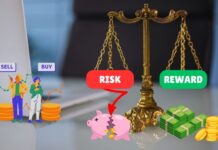With the allure of making significant gains, it’s easy to get swept up in the excitement and overlook a critical aspect: ensuring the trading platform you’re using is properly regulated. After all, this isn’t just about the thrill of the trade; it’s about your hard-earned money. So, let’s dive into the nitty-gritty of verifying a trading platform’s regulation without all the formal jargon and stiffness. We’re going to keep it light, fun, and informative. Buckle up, and let’s get this party started!
You know how they say, ‘Trust, but verify’? Well, that’s exactly the approach you should take when it comes to market trading platforms. It’s not just about finding a platform that’s user-friendly or offers the best trading tools. It’s about making sure that the platform you’re entrusting with your investments is legit and has the right credentials.
The Importance of Regulation in Market Trading
Regulation is like the bouncer at a nightclub. It’s there to make sure that only the right people get in and that everyone follows the rules. In the world of market trading, regulation ensures that platforms operate within a legal framework, protecting both the traders and the integrity of the financial markets. When you’re trading, you’re essentially playing with high stakes, and you want to make sure the game is fair. That’s where regulation comes in.
What Does Regulation Look Like?
Regulation can take many forms, and it varies from country to country. In the UK, for instance, platforms are regulated by the Financial Conduct Authority (FCA). In the US, you have the Commodity Futures Trading Commission (CFTC) and the National Futures Association (NFA). These regulatory bodies set the standards and monitor compliance to ensure that platforms are transparent, fair, and secure.
How to Spot a Regulated Platform
One of the first things you should do when you’re considering a trading platform is to check if it’s regulated. A regulated platform will openly display its regulatory status on its website. It’s not something they hide; it’s a badge of honor. Look for logos or mentions of regulatory bodies. If you’re in doubt, don’t hesitate to reach out to the platform’s customer service and ask for proof of their regulation.
The Role of Regulatory Bodies in the Market
Regulatory bodies are like the referees in a football match. They make sure that the game is played according to the rules and that no one is cheating. In the context of market trading, these bodies ensure that platforms are not engaging in fraudulent activities, that they maintain proper capitalization, and that they have the necessary measures in place to protect their clients’ funds.
Why Regulation Matters to You
As a trader, regulation matters to you because it’s a sign that the platform you’re using is committed to operating ethically and responsibly. It means that your funds are safer, and you have recourse if something goes wrong. It’s not just about the platform’s reputation; it’s about your peace of mind and the security of your investments.
How to Verify a Platform’s Regulation
Now, let’s get down to the brass tacks. Here are some steps you can take to verify a trading platform’s regulation:
- Check the Platform’s Website: Start by visiting the platform’s website. Look for any mention of regulatory bodies or licenses.
- Contact the Regulatory Body: If you’re unsure, you can always contact the regulatory body directly. They can confirm whether a platform is regulated and provide you with more information.
- Look for Client Reviews and Testimonials: Sometimes, other traders’ experiences can give you a sense of the platform’s reliability. However, take these with a grain of salt and always cross-reference with other sources.
- Check for Transparency: A regulated platform will be transparent about its fees, trading practices, and any potential risks.
- Use a Reputable Comparison Site: There are several websites that compare different trading platforms and include information about their regulation. These can be a good starting point for your research.
The Impact of Regulation on Market Trading
Regulation has a significant impact on market trading. It helps maintain order in the market, prevents market manipulation, and ensures that all participants have a level playing field. When platforms are regulated, it fosters trust among traders and encourages more people to participate in market trading.
Navigating the Unregulated World
While most traders prefer to stick with regulated platforms, there are some who might be tempted by the allure of unregulated platforms, which sometimes offer higher leverage or more exotic instruments. However, the risks are much higher. Unregulated platforms may not have the same level of security, and you might not have the same legal protection if things go south.
The Future of Regulation in Market Trading
As market trading continues to evolve, so does regulation. With the rise of new technologies and trading methods, regulatory bodies are constantly adapting to ensure that they can protect traders and maintain market integrity. This is an ongoing process, and it’s essential for traders to stay informed about changes in regulation that might affect their trading activities.
Conclusion
In the exciting world of market trading, taking the time to verify a trading platform’s regulation might seem like a chore, but it’s a crucial step in ensuring the safety of your investments. It’s not just about following the rules; it’s about making sure that you’re playing the game on a level field and that your hard work and money are protected. So, the next time you’re ready to dive into a new trading platform, take a moment to do your due diligence. It might just save you a world of trouble down the line.




